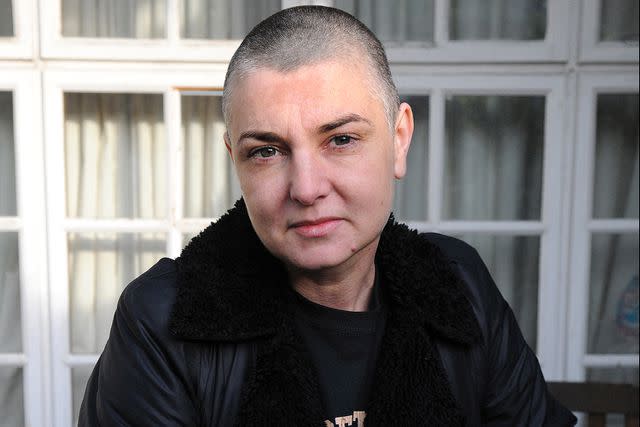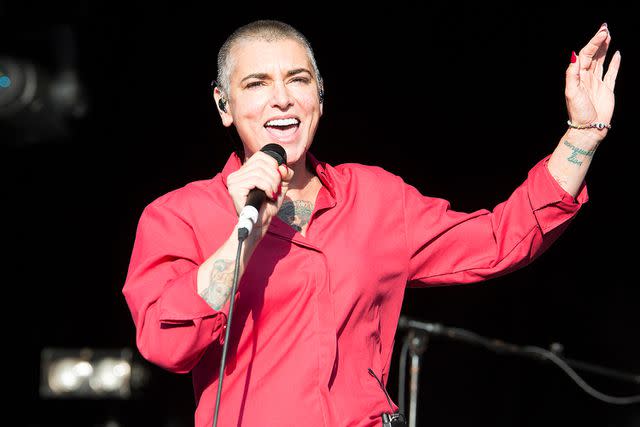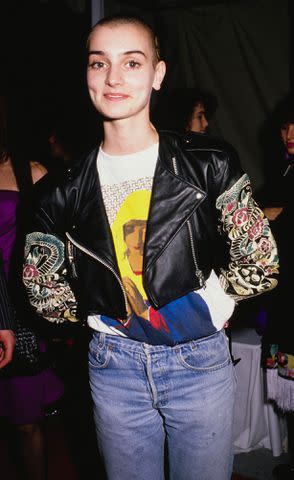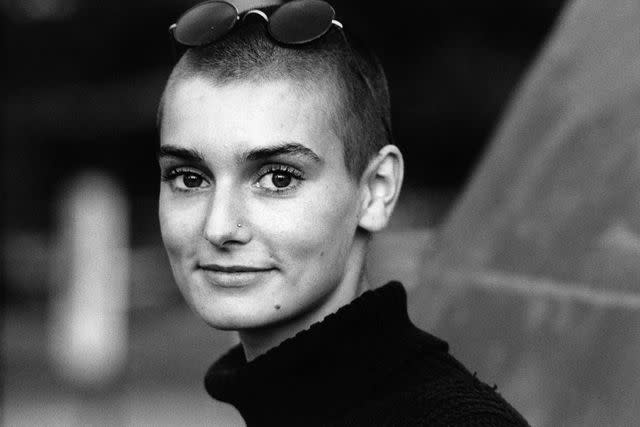Sinéad O'Connor Dead at 56
The "Nothing Compares 2 U" singer had struggled for years with her mental health, and had recently announced plans for new music and a tour

David Corio/Redferns/Getty
Sinead O'ConnorSinéad O'Connor, the Irish singer whose legacy with hits like "Nothing Compares 2 U" was complicated by her outspoken dedication to various social issues and a series of mental health struggles, has died. She was 56.
"It is with great sadness that we announce the passing of our beloved Sinéad," her family confirmed in a statement to RTE and the BBC. "Her family and friends are devastated and have requested privacy at this very difficult time."
A cause of death was not disclosed.
The singer's death was first reported by The Irish Times. A rep for O'Connor did not immediately reply to PEOPLE's request for comment.
O'Connor broke through in 1990 with her No. 1 hit "Nothing Compares 2 U," a song written and composed by Prince. Prior to her death, she'd released 10 albums, most recently 2014's I'm Not Bossy, I'm the Boss.
Though the song was nominated for four Grammy Awards in 1991, she boycotted that year's ceremony, writing in an open letter that the Academy "acknowledge[s] mostly the commercial side of art."

David Corio/Redferns/Getty
Two years after her massive hit, O'Connor made headlines once more with an infamous appearance on Saturday Night Live, during which she tore up a photo of Pope John Paul II after performing an a cappella version of "War" by Bob Marley. She then told the audience to "Fight the real enemy."
The gesture was O’Connor's response to the Catholic Church's alleged cover up of the sexual abuse of children. (In the decades since, the Catholic Church has been involved in countless lawsuits involving child sexual abuse, according to the New York Times.)
The stunt sparked serious backlash toward O'Connor, though she has since said she has no regrets ("A lot of people say or think that tearing up the pope's photo derailed my career. That's not how I feel about it," she wrote in her 2021 book Rememberings. "I feel that having a number-one record derailed my career and my tearing the photo put me back on the right track").

Rob Ball/Redferns via Getty Images
Sinead O'Connor in August 2014In 2021, she announced her retirement from music and touring, writing that she'd "gotten older" and was "tired." Days later, though, she reversed course, saying, "I love my job. Making music that is. I don’t like the consequences of being a talented (and outspoken woman) being that I have to wade through walls of prejudice every day to make a living."
Born in Dublin on Dec. 8, 1966, O’Connor was the third of five children born to John, an engineer and lawyer, and his wife Marie.
The young O’Connor’s childhood was rocky; her parents divorced, and in 2012, she told PEOPLE that her mother psychologically and physically abused her and “spent a good time trying to destroy my reproductive system.”
“It was a torture chamber, really,” she said. “But I forgive my mother; she just wasn’t well.”
She ran away to live with her father at age 13, but two years later, was sent to a Magdalene asylum for "unruly" women for 18 months after she was caught shoplifting.

Vinnie Zuffante/Michael Ochs Archives/Getty Images
Sinéad O'Connor at the Grammy Awards in 1989O’Connor was eventually diagnosed with bipolar disorder as well as complex post-traumatic stress disorder and borderline personality disorder. In 2015, she underwent a radical hysterectomy to treat endometriosis, which sent her into a downward spiral.
"You can never predict what might trigger the [PTSD]. I describe myself as a rescue dog: I'm fine until you put me in a situation that even slightly smells like any of the trauma I went through, then I flip my lid," she told PEOPLE in 2021. "I manage very well because I've been taught brilliant skills. There was a lot of therapy. It's about focusing on the things that bring you peace as opposed to what makes you feel unstable."
Despite the trauma from her childhood, O'Connor was rattled by her mother's 1985 death in a car accident, and promptly moved to London for a fresh start after quitting the Irish band with whom she'd started playing music.
She released her debut album in 1987, and its 1990 followup I Do Not Want What I Haven't Got rocketed her to international fame on the back of "Nothing Compares 2 U," which became a global hit.

Michel Linssen/Redferns/Getty
Sinead O'ConnorFor O’Connor, it was more than just a song. “The song reminded me of my mother,” she later admitted. “I made an emotional connection, which I was not expecting—it didn’t hit me when I was recording the song. It only kicked in when I was being filmed. So I was sitting there, thinking about me mother, and trying hard not to bawl my eyes out.”
Though it was Prince’s song that made her a star, her feelings toward the late “Purple Rain” singer were complicated, and in a passage from Rememberings, she recalled an evening in which he scolded her for swearing in interviews, and allegedly tried to hurt her using a stuffed pillowcase.
“It certainly didn't change my opinion of him as an artist, which was the only opinion I could have had. I never knew him otherwise," she told PEOPLE in 2021 of the encounter. "Obviously, I came away not liking him very much and not particularly wanting to go around to see him again. But having said that, though, I won't lie. I didn't like the man."
In spite of the song's popularity, and the fact that she continued to release music, O'Connor's career never reached the same heights after her appearance on Saturday Night Live, and she instead became wracked with problems in her personal life, including a painful custody battle with John Waters, the father of her daughter Roisin.
Related: All About Sinéad O'Connor’s 4 Children
Facing accusations that she was an unfit mother, she tried to take her own life in 1999, reportedly swallowing 20 Valium pills on her 33rd birthday.
“That was... after a session in court that day where it was suggested that for the rest of my life I would only see my daughter once a month,” she said in 2005. “I made a very serious suicide attempt, and I did almost die.”
As she healed, O'Connor threw herself into motherhood and religion, becoming an ordained priest of the Latin Tridentine Church (She later announced in 2018 that she'd converted to Islam).
Though she announced a retirement in 2003, explaining that she no longer wanted to be famous and wanted to live "a 'normal' life," she continued to release music.
Still, her mental health struggles continued to surface, culminating in a hospitalization in 2022 after the death of her 17-year-old son, Shane.
Shane, whom she shared with musician Dónal Lunny, went missing in January 2022, and O'Connor revealed days later that he'd died by suicide.
Related: Sinéad O'Connor's Marriages: What She Said About Her Past Spouses
"My beautiful son, Nevi'im Nesta Ali Shane O'Connor, the very light of my life, decided to end his earthly struggle today and is now with God," she tweeted at the time. "May he rest in peace and may no one follow his example. My baby. I love you so much. Please be at peace."
In recent weeks, O'Connor appeared to be looking forward to the future, and wrote on Facebook that she was working on new music and had hopes for an international tour.
"Hi All, recently moved back to London after 23 years absence. Very happy to be home : ) Soon finishing my album. Release early next year : )" she wrote on July 11. "Hopefully Touring Australia and New Zealand toward end 2024. Europe, USA and other territories beginning early 2025 : ) #TheBitchIsBack"
For more People news, make sure to sign up for our newsletter!
Read the original article on People.
